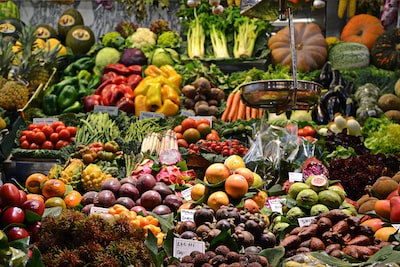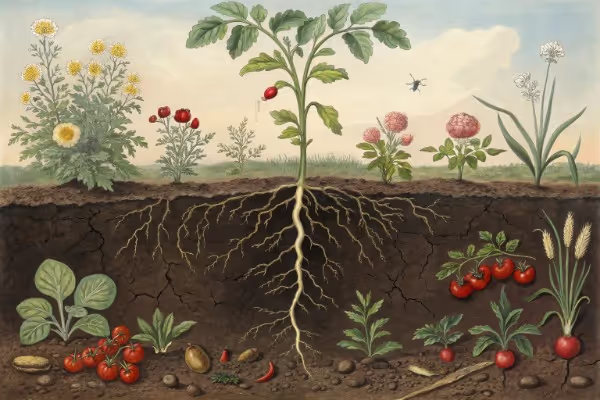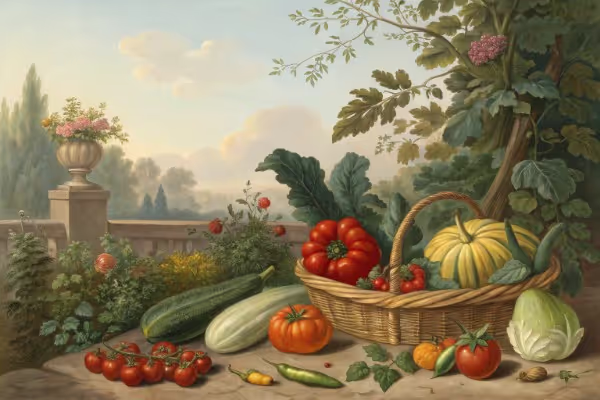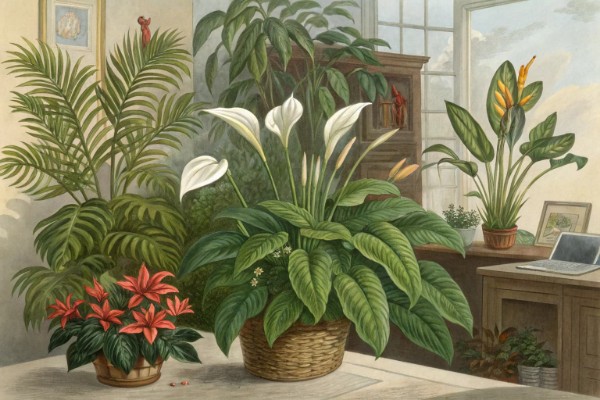Garden Size: How Much Space Does Your Garden Really Need?

Garden Size
Wondering if your garden size matches your planting aspirations? Optimal garden size hinges on factors like how much produce you want, what plants excite your palate, and the available sunlight and space you've got. Understand your goals, plan accordingly, and reap greater satisfaction; here's how to size your garden right for maximum bounty and joy.
Cheatsheet: Efficient Garden Space Planning
🌱 Space Guidelines Per Person
- Beginner yields: 100 sq ft (9 m²)/person, 2-3 crops/year
- Experienced yields: 400 sq ft (37 m²)/person for year-round veg
🍅 Popular Crops: Suggested Space
- Tomatoes: 2 sq ft (0.18 m²)/plant
- Lettuce: 1 sq ft (0.09 m²)/head
- Carrots: 9/in² (6/cm²)
- Beans: 1/ft (30 cm) row spacing
⚖️ Yield vs. Health & Nutrition
- Home gardens supply up to 50% daily veg needs (USDA)
- Dense plantings boost nutrient variety
- Fresh-pick vitamins higher than store-bought
🏡 Maximize Small Spaces
- Vertical trellises: beans, peas, cucumbers
- Container gardening: tomatoes, lettuce, peppers
- Square foot method: 1 sq ft blocks/plant
🛠️ Tools and Products You'll Need
- Spade/trowel
- Measuring tape
- Compost/organic fertilizer
- Stakes/trellis/netting
- Mulch
- Quality seeds/starts
🧩 Steps to Plan Your Garden Size
- List vegetables/fruits you’ll grow
- Estimate each crop’s space needs
- Tally total area by person/household
- Plot beds for sun (6+ hrs daily), access, water
- Choose raised beds/containers if soil limited
🌾 Pro Tips
- Start small, expand yearly
- Track yields to fine-tune future space
- Rotate crops for soil health
- Plant quick crops (radish, arugula) in gaps
Garden Size: How Big Does My Garden Really Need To Be?
I vividly remember my first garden—a tiny patch, maybe 8 by 10 feet (2.5 by 3 meters), crammed behind an urban apartment. Tomatoes fought zucchini for sunlight, herbs staged rebellions, and I quickly discovered that garden size shapes the entire gardening experience.
Understanding Your Gardening Goals
Before grabbing a shovel, decide what you actually want out of your garden. Are you dreaming of gourmet salads fresh-picked daily? Or do you just fancy a cozy spot for weekend relaxation?
- Vegetable Gardens: For feeding yourself, aim for about 100 square feet (9 square meters) per person. My current veggie garden, at around 300 square feet (28 square meters), produces enough cucumbers and kale to mildly irritate my friends and neighbors.
- Herb Gardens: Herbs grow vigorously in small spaces. Just 20 square feet (2 square meters) of basil, thyme, or cilantro can abundantly season your cooking.
- Flower Gardens: For visual appeal, even 50 square feet (4.6 square meters) is sufficient to dazzle. My grandmother’s flowerbed—no larger than a dining table—was her canvas for decades.
Think Maintenance, Not Just Size
A larger garden equals more maintenance, plain and simple. Weeding, watering, and pruning multiply quickly with increased square footage.
"A garden requires patient labor and attention. Plants do not grow merely to satisfy ambitions; they thrive under care, respect, and reasonable boundaries."
Assess realistically how much time and energy you have. I’ve witnessed ambitious acquaintances transform sprawling yards into neglected weed factories within months.
Working With Limited Space
Urban garden life taught me one golden truth: limited space sparks creativity. If your yard is postage-stamp-sized, vertical gardening and raised beds can save the day:
- Vertical Gardening: Hanging baskets, wall planters, and trellises practically double your growing area. Tomatoes, peas, cucumbers—training plants upward not only saves space but reduces disease.
- Raised Beds: Defined, manageable, and productive, raised beds allow precise control over soil quality. My own experience shows that a single 4x8-foot (1.2 by 2.4-meter) bed can yield an impressive veggie harvest.
Balancing Garden Size with Lifestyle
Ultimately, a garden should complement your lifestyle, not dominate it. Ask yourself honest questions: How often do I travel? Am I willing to spend weekends pruning roses instead of brunching?
Gardening should be joyful, not overwhelming. If your enthusiasm outpaces your time and energy, start smaller—the earth won’t run out of space anytime soon.
Considering Climate and Growing Seasons
Climate dictates your garden's productivity and therefore impacts ideal garden size. Shorter growing seasons, such as those in Canada or northern Europe, may warrant slightly expanded spaces to yield sufficient produce.
Conversely, warm climates with longer growing periods allow continuous planting and harvesting, meaning smaller gardens can still supply ample bounty.
"Garden size is a careful dance between desire and reality, patience and ambition."
Finding that sweet spot takes a little experimentation—and maybe a zucchini invasion or two—but it pays verdant dividends in satisfaction and harvest alike.
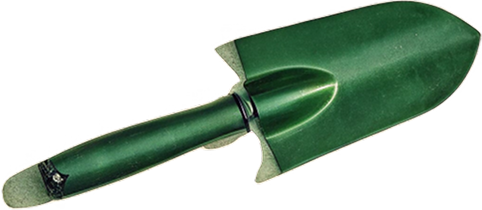
Want smarter plant choices? 🪴
Frequently Asked Questions about Choosing the Right Garden Size
What factors determine the ideal garden size for my home?
Your ideal garden size largely depends on available space, gardening goals, available time, and family size. Consider your weekly schedule and how much maintenance you can comfortably manage. Account for how many people will benefit from the produce or outdoor space you create.
Does garden size affect plant health and productivity?
Yes, the size of your garden directly impacts plant health and productivity. Adequate spacing allows for proper airflow, sunlight exposure, and nutrient absorption, reducing disease occurrence and improving overall yield and plant vitality.
How much space do I need for growing vegetables?
A productive vegetable garden typically requires around 100 square feet (9.3 square meters) per person to provide seasonal fresh produce. Smaller spaces can perform well if you choose compact plants or employ vertical gardening techniques.
Can I effectively garden in a small urban space?
Absolutely. Many gardeners successfully cultivate herbs, vegetables, and flowers in compact spaces using methods like raised beds, vertical gardening, container planting, and window boxes. Thoughtful planning can optimize even limited outdoor areas.
How does climate affect the space I need for gardening?
Your local climate conditions, including average temperatures and rainfall patterns, strongly influence garden layout and recommended planting densities. In cooler climates with shorter growing seasons, planting closely can maximize yield in limited time. Warmer climates with extended seasons may benefit from wider spacing for optimal plant growth.
What are space-efficient gardening methods I can use?
For gardeners limited in space, consider adopting vertical gardening, raised-bed gardening, container planting, intensive planting methods, and trellis structures. These approaches creatively maximize yield and aesthetic appeal while minimizing required space.
Should pathways and access areas influence my garden dimensions?
Yes, include comfortable pathways for accessibility and ease of maintenance when calculating garden dimensions. Leave enough space for walking, tool use, and harvesting, typically paths around 18–24 inches (45–60 cm) wide.
Garden Size is less about square footage and more about matching your ambitions with your available time, energy, and appetite for fresh produce. A modest plot can yield armfuls of tomatoes if you plan smart and pay attention. Go big, and you’ll need to keep up—otherwise, weeds take the prize. Efficiency wins over excess every time. If you’re after nutrient-dense vegetables or looking to experiment with innovations in vegetable gardening, start with a size you can handle and scale up only when you crave more. In the end, garden size should feed your soul, not drain it. Grow what you love, tend what you can, and let the results speak for themselves.
The Homesteader's Take on Garden Size: Practical Strategies for Self-Sufficiency
Food Production Per Person
- Vegetables: Plan approximately 200 sq ft (18.5 m²) per family member to yield fresh seasonal produce plus extra for preserving.
- Fruit Trees & Bushes: Allocate 100 sq ft (9.3 m²) per person, focusing on high-yield varieties like dwarf apple, pear, blueberry bushes, and raspberries.
- Grains & Staples: Reserve 300 sq ft (27.8 m²) per person if cultivating calorie-dense staples like corn, potatoes, beans, or wheat for food security.
Livestock Integration
- Chickens: Allow at least 4 sq ft (0.37 m²) coop space and 10 sq ft (0.93 m²) outdoor run area per bird; 6 hens comfortably supply eggs for a family of four.
- Goats & Sheep: Require a minimum of 400 sq ft (37 m²) grazing space per animal for adequate pasture management.
- Rabbits: Efficient protein producers needing only 8 sq ft (0.74 m²) cage area per adult rabbit.
Soil Quality & Crop Rotation
Practice crop rotation every season to avoid soil depletion. Plant legumes such as peas or beans after nutrient-heavy crops (tomatoes, corn) to restore nitrogen naturally.
Water Efficiency
- Install rain barrels (55-gallon/208-liter capacity) to irrigate approximately 100 sq ft (9.3 m²) of garden beds per barrel.
- Drip irrigation methods conserve 30–50% more water than traditional methods.
Preservation & Storage Space
- Each family member typically needs 10–15 sq ft (0.93–1.4 m²) pantry storage space for canned, dried or root-cellared produce.
- A root cellar measuring 8 × 10 ft (2.4 × 3 m) can store enough root vegetables and fruit for a family of four for several months.
Community Collaboration
Consider shared growing or livestock-raising arrangements with neighbors to save space and diversify food resources effectively.
Find out which plants will thrive in your garden!
Answer a few fun questions and get custom plant recommendations perfect for your space. Let’s grow something amazing together!

start your season
